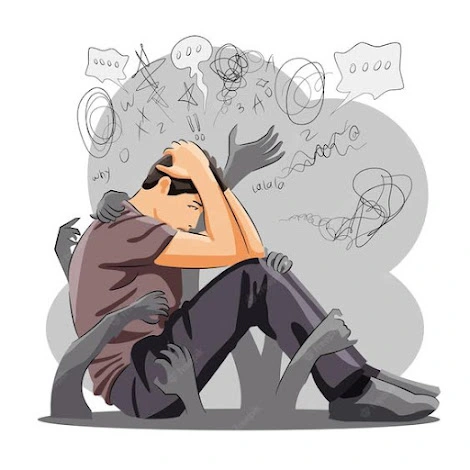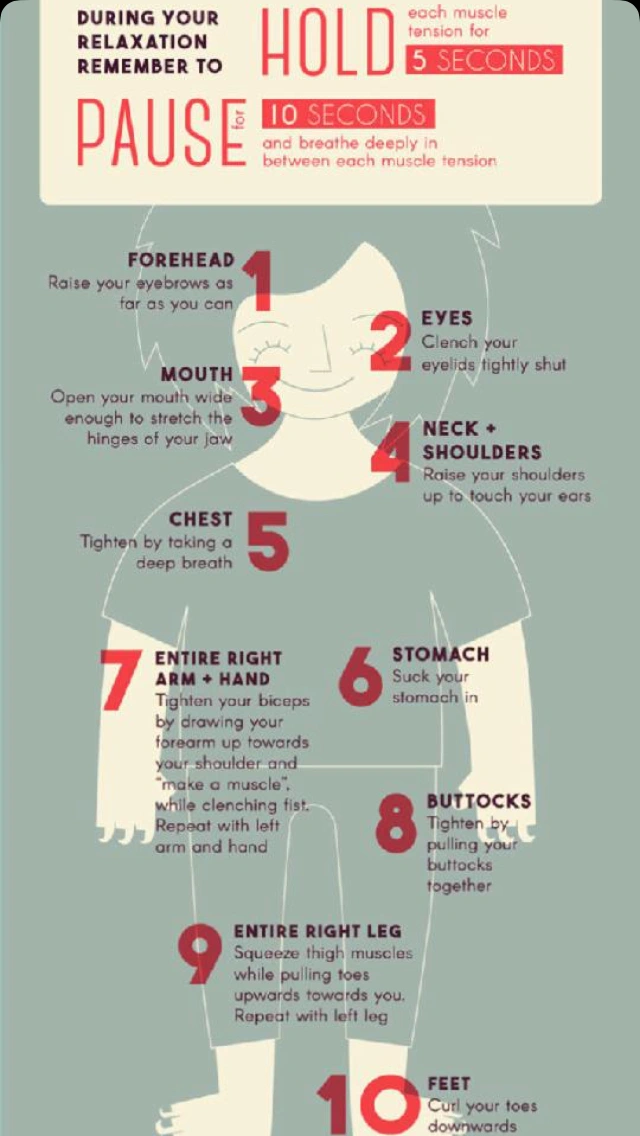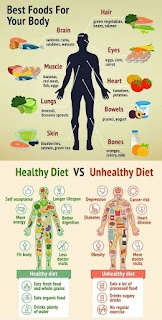Strategies for Managing and Reducing Stress in Daily Life
Strategies for Managing and Reducing Stress in Daily Life
Proven Approaches to Effectively Manage and Alleviate Daily Stress

What is stress management?
It could feel hopeless to address stress. There won't be additional hours in a day, the bills won't stop coming, and your obligations to your family and job will never let up. However, you may be surprised to learn how much more power you actually have. Your overall well-being is at stake if you lead a stressful life. Your emotional balance, general physical and mental health, and overall well-being are all severely impacted by stress. It reduces your capacity for clear thinking, efficient operation, and enjoyment of life. Being able to effectively manage stress allows you to become happier, healthier, and more productive by releasing the grip that stress has on your life. A balanced life with time for work, relationships, leisure, and fun—as well as the fortitude to withstand adversity and take on problems head-on—is the ultimate objective. It is not a one-size-fits-all approach to stress management. It's crucial to try several things and determine what works best for you because of this. You can achieve that by using the stress-reduction advice that follows.
Identify Stressors
Work-related Stress
Stress at work is a frequent and important element influencing mental health. An environment that is stressful can be brought about by the demands of the job, short deadlines, and high expectations. We will discuss particular work-related stressors in more detail as well as useful coping mechanisms in this section.

Insufficient Tasks
Stress and burnout can result from heavy workloads and irrational expectations. To preserve a healthy work-life balance, it's critical to identify when work expectations become unreasonable and to develop realistic boundary-setting skills.
Insufficient Job Management
Stress can be exacerbated by not having control over one's decisions and tasks at work. Learn how to take charge when it's possible and deal with circumstances where control is restricted.
Conflicts Among People
Well-being can be severely impacted by conflict with bosses or coworkers. To promote harmony in the workplace, we'll look at effective communication tactics and conflict resolution methods.
Personal Relationships
Handling interpersonal interactions can be just as difficult and stressful. Addressing these stressors is essential to preserving general wellbeing.
Family Relationships
Stress can arise from family dynamics, including arguments and miscommunications. Understand how to set up appropriate limits and negotiate relationships with family members.
Social Coercion
Daily stress can be increased by social pressures and demands from friends and acquaintances. Learn how to balance societal expectations with preserving wholesome relationships.
Stress in Money
Financial difficulties are a common cause of stress. Examine practical approaches to money management and reduce the impact of financial strain.
Highly Effective Tips for Relieving Stress
Furthermore, what suits you at home might not be appropriate for you at work or in the community (dancing in your living room might be useful, but not necessarily in the grocery store).
Therefore, it's critical to have a range of stress-relieving resources available. After that, you'll be able to select a plan of action that best suits your existing situation.
Quick-Fix Stress Reduction Techniques
Which techniques can quickly reduce stress? Many beneficial methods, like deep breathing and meditation, are quick fixes that you can use whenever and wherever you choose.
It's critical to have some stress-reduction strategies on hand that can help you reduce your stress levels immediately, regardless of whether you're going on a job interview or are just feeling too stressed out due to your child's actions at the playground.
The best short-term strategies:
Can be performed anywhere
Take very little practice to master
Are free
Provide immediate relief
Meditate
Both immediate and long-term benefits for stress management are brought about by meditation. There are numerous types of meditation to explore; each has its own special qualities and benefits.
As you inhale deeply and slowly, you may come up with a mantra that you repeat to yourself. Alternatively, you could spend some time practicing mindfulness, which is present-moment awareness. Just be aware of the taste, touch, smell, taste, and hearing.
When you're focused on the here-and-now, you won't be able to ruminate about something that already happened and you can't worry about something in the future. Meditation and mindfulness take practice, but it can make a big difference in your overall stress level as it brings you back to the present.
Engage in Progressive Muscle Relaxation.
The goal of progressive muscle relaxation is to gradually relax each set of muscles in your body. You can begin by taking a few deep breaths to begin practicing.
Next, begin with your forehead and work your way down to your toes, tensing and relaxing each muscle group.
You'll be able to identify tension and tightness in your muscles and become more adept at relaxing with practice. But each time you work on this, you should feel a wave of relaxation wash over your body.

Pay Attention to Your Breath
Simply paying attention to your breathing or altering the way you breathe can have a significant impact on your level of stress. In a matter of minutes, breathing exercises can help you relax both physically and mentally.
The best part is that nobody will be able to tell you're doing them. So, breathing techniques may be essential to lowering your stress levels whether you're in a tense meeting or a packed theater.
While there are several breathing techniques, such as karate breathing, here are a few basic ones:
As you inhale through your nose, you should feel the air fill your abdomen. As you inhale, softly count to three. After a brief moment of holding still, slowly exhale through your nostrils while repeating the count of three.
Imagine that you are breathing in serene, tranquil air as you take a deep breath through your nose. Imagine your body being filled with that air. Envision yourself releasing tension and stress as you exhale.
Get moving
The last thing you probably feel like doing when you're stressed out is working out. However, engaging in physical activity can greatly reduce stress, and you don't need to be an athlete or devote a lot of time to working out to reap its advantages. Exercise can be a useful diversion from your everyday troubles and releases endorphins, which are feel-good chemicals.

Here are some easy ways to incorporate exercise into your daily schedule:
Put on some music and dance around.
Take your dog for a walk.
Walk or cycle to the grocery store.
Use the stairs at home or work rather than an elevator.
Park your car in the farthest spot in the lot and walk the rest of the way.
Pair up with an exercise partner and encourage each other as you work out.
Play ping-pong or an activity-based video game with your kids.
Take a Hug from Someone You Love
Your stress levels can be greatly reduced by physical touch. Giving a loved one a hug can be quite helpful.
When you hug someone, oxytocin (also known as the "cuddle hormone") is released. Oxytocin is associated with higher levels of happiness and lower levels of stress.
Additionally, oxytocin lowers blood pressure. It can create a feeling of relaxation and lower the stress hormone norepinephrine.
Therefore, if you need an embrace, don't be scared to ask a loved one for one. It might be one of the most straightforward methods of stress alleviation accessible and is beneficial to you both.
Take pleasure in aromatherapy.
When it comes to relieving stress, aromatherapy works. It can make you feel more energised, at ease, or in the present moment.
According to recent studies, certain smells may change brain wave activity and reduce the body's production of stress chemicals.
Consider adding some aromatherapy to your day, regardless of whether you like using candles, diffusers, or body items.
Create Art
It might not have been difficult for you to reconnect with your artistic side when you were younger, but if you've forgotten about your love of art, it's never too late to start again.
Consider coloring in a coloring book if you don't enjoy drawing or painting. Coloring may be a fantastic way to reduce stress, which is why adult coloring books are becoming more and more popular.
Research consistently shows that coloring can have a meditative effect. One study found that anxiety levels decline in people who were coloring complex geometric patterns, making it a perfect outlet for stress reduction.
Strategies for Long-Term Stress Reduction
What steps can you take to permanently reduce mental stress? A few routines can improve general wellness and stress tolerance. People who frequently work out or practice meditation, for instance, typically experience reduced stress when faced with a challenging task.
Establishing a lifestyle that will enable you to manage stress and overcome obstacles in a healthy manner is therefore crucial.
Eat a Balanced Diet
Higher responsiveness to stress can be linked to poor eating. High-fat, high-sugar foods and emotional eating can give you a little sensation of relaxation, but they also increase your stress levels over time.

Blood sugar can rise when you eat refined carbohydrates like potato chips and cookies. An increase in tension and anxiety may occur when your blood sugar plummets.
Over time, maintaining a nutritious diet might assist you in managing stress. Good foods that help balance energy and mood include walnuts, avocados, and eggs.
Consider Using Supplements for Stress Relief
Certain vitamins and supplements might be helpful in reducing stress. Which vitamins are beneficial for stress relief? A daily multivitamin can help make sure you get the vitamins and minerals you need to feel your best and help address nutritional deficiencies. Other dietary supplements that could aid in stress relief include:
Melatonin: Your body's circadian rhythm can be regulated with the aid of this natural hormone. You can feel less stressed if you get better sleep.
Ashwagandha: This adaptogenic herb may strengthen the body's ability to withstand both physical and emotional strain.
L-theanine: Research has indicated that this amino acid can aid in stress reduction, relaxation, and better sleep.
B vitamins: Some studies show that B vitamins might lessen stress, elevate mood, and lower homocysteine levels.
Allocate Time for Recreational Pursuits
Setting aside "me" time is another way to lessen stress in your life, in addition to taking initiative and maintaining an optimistic outlook. Avoid being so engrossed in life's activities that you neglect to tend to your personal needs. Self-care is a need, not an extravagance. Making time for leisure and enjoyment on a regular basis will help you cope better with life's challenges.
Set aside leisure time. Make time each day for relaxation and rest. Keep other commitments out of the way. Now is the perfect moment for you to detach yourself from all obligations and rejuvenate.
Do something you enjoy every day. Schedule time for enjoyable hobbies and pastimes, such as riding your bike, playing the piano, or stargazing. However, a lot of people believe that their schedules are too full for games, hobbies, or extra enjoyment.
The secret to living your best life is having hobbies and leisure time, whether you enjoy sewing quilts or tending to a garden.
Connect To Others
Nothing is more soothing than spending time with a fellow human who gives you a sense of security and understanding. In actuality, face-to-face communication sets off a hormonal chain reaction that negates the body's protective "fight-or-flight" reaction. It is a naturally occurring stress reliever that also has the added benefit of preventing anxiety and depression. Thus, make it a point to stay in touch with loved ones on a regular basis, face-to-face.
Remember that you don't need the individuals you chat to to be able to relieve your stress. All they have to do is listen well. Additionally, try not to let your inhibitions about coming out as needy or weak prevent you from being open. The individuals you care about will be touched by your confidence. You two will only get closer as a result.
Even if it's not always possible to rely on a friend when you're feeling stressed out, you can increase your ability to handle life's challenges by creating and sustaining a network of close friends.
Relationship-building advice
Speak with a coworker at the office.
Volunteering can help someone else.
Grab coffee or lunch with a pal.
Have a loved one give you a regular update.
Reach an old friend by phone or email.
Take a friend who works out for a walk.
Set up a dinner date each week.
Enroll in a class or join a group to make new acquaintances.
Turn to a clergyman, a teacher, or a sports coach for support.
Participate in a support group through an online therapy platform or in person.
Eliminate Things That Make You Worried
Sometimes making a change in your life is the greatest approach to deal with stress. To find more calm, get rid of the things that are making you feel stressed.
A few activities that could make your life more complicated include reading the news, using technology nonstop, drinking alcohol, and taking excessive amounts of coffee. You might feel better if you make some adjustments to your everyday routine.
FAQs
Can stress be completely eliminated?
Stress is a natural response, but effective management can significantly reduce its impact.
How long does it take to see the effects of stress management techniques?
The timeline varies, but consistent practice of stress management techniques yields positive results over time.
Are there specific foods that can help reduce stress?
Yes, certain foods, like those rich in omega-3 fatty acids and antioxidants, can support stress reduction.
Can stress affect physical health?
Chronic stress can negatively impact physical health, contributing to various health issues.
Is it necessary to consult a professional for stress management?
While self-help strategies are beneficial, consulting a professional can provide tailored guidance for your unique situation.
How does outdoor activity contribute to stress reduction?
Outdoor activities promote relaxation, reduce cortisol levels, and enhance overall well-being.
A Remark From The Body Blueprint
It could take some experimenting to find the most effective stress-reduction techniques. It could require some practice to use these tactics.
It is imperative, however, to never stop searching for the resources that will enable you to deal with life's unavoidable highs and lows in a constructive manner. It's critical for your general wellbeing to maintain a sustainable level of stress.
Like this project
0
Posted Mar 7, 2024
Proven Approaches to Effectively Manage and Alleviate Daily Stress
Likes
0
Views
1






